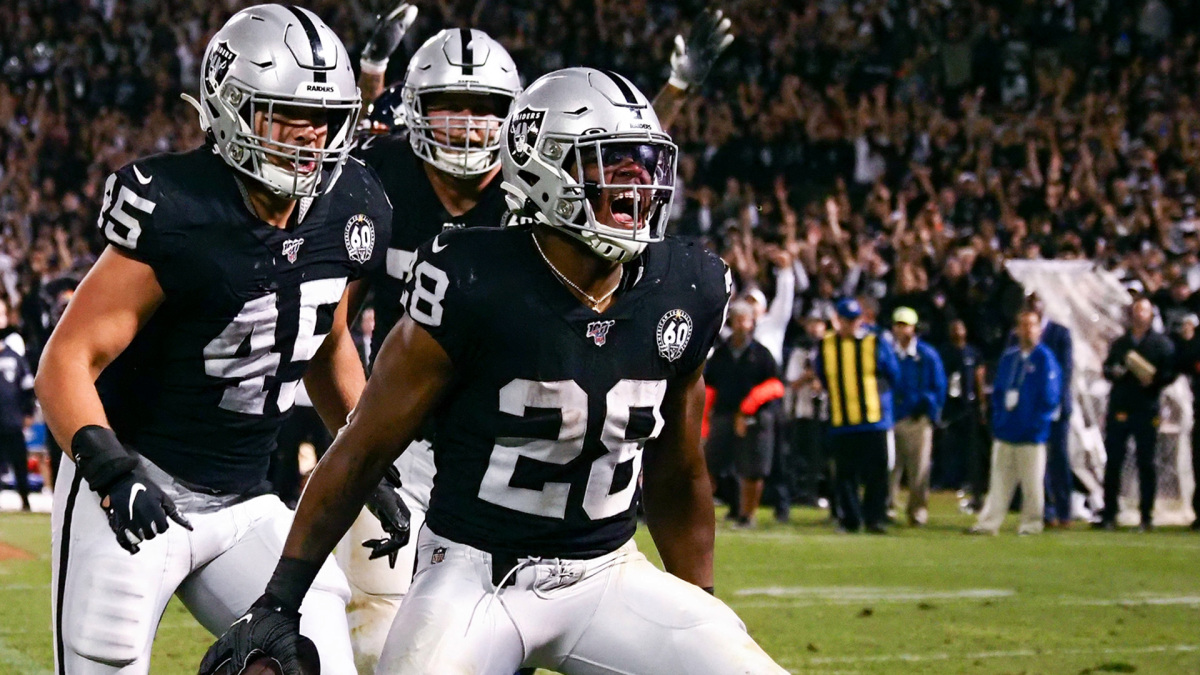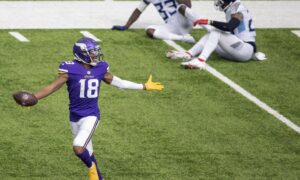ADP is not everything.
In fact, ADP, or “average draft position”, doesn’t really mean anything.
Sure, it helps you keep track of players. I can’t tell you how many times I look at my cheat sheet during drafts and think “wow, did I almost forget this guy existed?”
It’s there as a reminder and a way to see how the fantasy football community at large ranks players. It rarely reflects actual positional finishes outside of the extreme top and bottom of the rankings. More recognizable names and recency bias affects how early people draft players like Aaron Rodgers and Miles Sanders. It’s what allows smart players to make better educated choices and grab players who have a better chance of success later than some players who only appear to have that same chance.
With this in mind, fantasy football players should be looking for value in every round that they pick. You don’t need to take the best value all the time, because you might really need a quarterback or tight end before it’s too late, but it’s good to know some great players available later in the draft so you can pick accordingly.
Based on FantasyPros’ current consensus draft rankings, I will go through every round and assume that players ranked 1-12 reflect the first 12 actual picks in a PPR draft for a total of 15 rounds. This order of player selections won’t ever happen in any draft, but it gives you an idea of which players offer the best value at their ADP from a website that many in your league might get their cheat sheets from.
Note: These rankings are as of August 8th, 2020, so they won’t account for any new developments that happen after the article is posted. I will continue to update this if anything major changes.
Round 1: Julio Jones – WR3, 8th overall
Round 1 is always the hardest to find “value” in because you are very limited in your choices. Although almost the entire league is available for you to consider, you mainly stick to a script. You aren’t grabbing Antonio Brown or D.J. Chark in this round, even if they might finish extremely well in a full season. Instead, you want to nail your first round.
Almost every league will start with Christian McCaffrey, Saquon Barkley, Ezekiel Elliott, and Alvin Kamara in some order. Sometimes Derrick Henry or Michael Thomas as well.
I don’t expect many surprise choices in the first, but if you’re drafting in one of the last few positions, you should definitely look at Julio Jones.
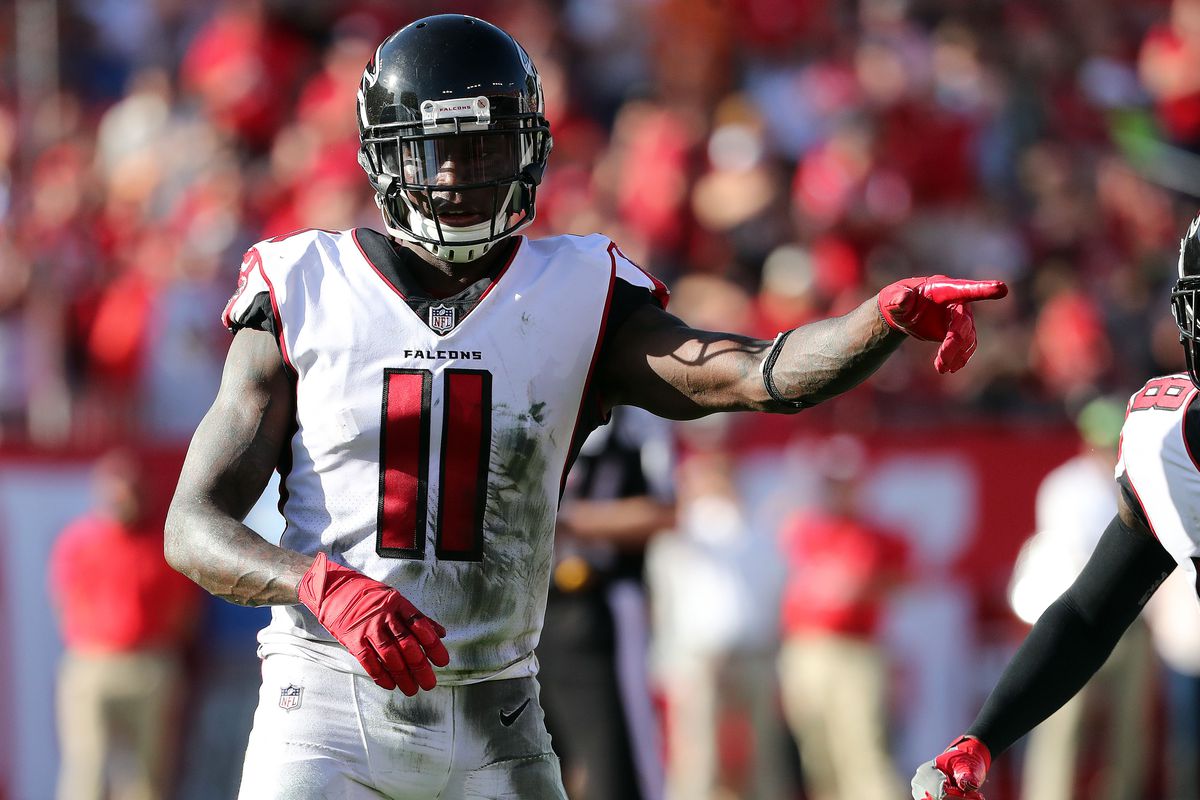
Photo by Kim Klement/USA TODAY
At 31 years old, Julio Jones is still one of the best receivers in the NFL right now, if not the best. While many won’t argue about Julio’s talent, he is still being drafted as the WR3, 4, and sometimes 5. You can consistently get him at the beginning of the second round, if you want to really see how people view him. That’s alright, though. I understand injuries make it frustrating to own him. While he hasn’t missed more than two or three games each year, he has had disappointing games due to playing limited snaps. However, you probably won’t find a more seasoned and consistent player at the position. Since 2014, Jones has had 6 straight top-10 fantasy seasons, and has had 1,400 receiving yards in almost all of them (2019 he had 1,394). With Matt Ryan continuing to lead the team paired with a bad defense, another incredible season for the star receiver is inevitable.
Round 2: Josh Jacobs – RB13, 22nd overall
Like the first round, you aren’t making many wild decisions in the second round. Jacobs has been dropping in rankings despite a phenomenal rookie season.
I understand his value in PPR doesn’t stack up to guys like Austin Ekeler or Aaron Jones. What he does have is rushing volume.
Unlike other teams that drafted a running back in the first two rounds of the draft, or the ones that already had another great back on the roster, the Raiders have Devontae Booker backing up Jacobs, with Jalen Richard likely remaining as the primary receiving back. DeAndre Washington is now in Kansas City, and leaves behind 41 vacated targets. Lynn Bowden Jr. was drafted in the third round of the 2020 draft, but will not be limited to one single role. Like the Cowboys with Ezekiel Elliott or the Titans with Derrick Henry, Jacobs will get 250 to 300 or more carries each season, and will play a limited role in the passing game. I can’t compare his talent to theirs, but their roles are similar. He will get the volume, and will be a reliable pick ranked at 22nd overall by FantasyPros.
Round 3: Robert Woods – WR15, 33th overall
It seems a change of scenery was all that was needed. Since departing from Buffalo to Los Angeles, Robert Woods has continued to set new career highs in receiving yards, touchdowns, targets, and receptions. His 2018 and 2019 campaigns have each produced 130 target and 1000+ yard seasons. He even has at least 100 rushing yards and a rushing touchdown in each of them.
Woods is still only 28, and while his fantasy points dropped from 2018 to 2019, he still ranked within the top 24 WRs. His 2019 season showed he has a fairly high floor most weeks, but can explode at any moment. In week 4 he had 13 catches for 164 yards, and in week 11 he had 13 catches for 172 yards.
But why Woods over anyone else?
Well, Brandin Cooks is gone.
Sure, Cooper Kupp, Tyler Higbee or Gerald Everett could take a lot of those targets left behind. However, Woods’ second half of the season was significantly more consistent than his first half. Coincidentally, Brandin Cooks’ snap percent dropped from about 90% each week to about 70%. In fact, that incredible week 11 performance by Woods coincided with Cooks only playing 38% of snaps. Listed as the WR16, Robert Woods has the chance to put up even more games like that. While I could feel comfortable with him as my WR1, I think he would excel paired with a top 5 receiver. If you did go heavy on running backs your first two picks, he still can put up numbers like the best of them. If his touchdowns even slightly increase you are drafting him at a major value.
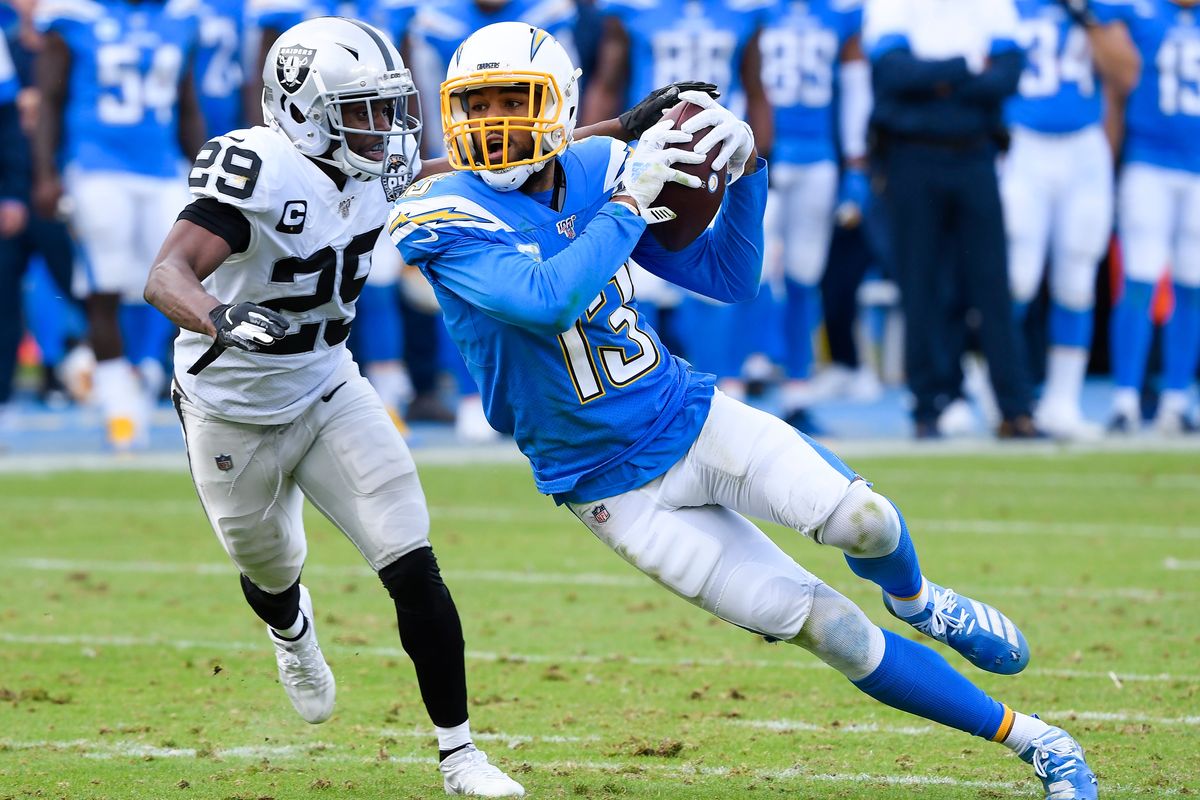
Photo by Robert Hanashiro-USA TODAY
Round 4: Keenan Allen – WR19, 44th overall
Allen has always been an underrated receiver despite putting up excellent seasons. Although the departure of Philip Rivers may be an area of concern, Tyrod Taylor has averaged just shy of 3,000 yards in his three years as the primary starter in Buffalo. With an actual offense at his disposal, the 31-year old should be given every opportunity to be serviceable. If guys like DeAndre Hopkins can prosper with questionable QB play, why can’t an elite route-runner like Keenan Allen?
Helping to complement this offense is speedster Mike Williams, who just put up his first 1,000-yard season. If Tyrod can take advantage of his arsenal of weapons, which also includes tight end Hunter Henry and reception-machine Austin Ekeler, everyone should flourish. As the top receiver, Keenan Allen should especially continue to do well.
Round 5: David Montgomery – RB24, 61st overall
After a phenomenal preseason, David Montgomery was one of the most hyped rookies in fantasy football in 2019. Disappointingly, Montgomery did not live up to his ADP. Despite a top-24 finish, this was not the player most were expecting to draft. Why should this year be any different?
Montgomery had double digit carries every week after week 1. While his overall touches were nothing special, he is like Jacobs in that he should continue to get the rushing work. Tarik Cohen, who had 79 receptions last season, is going to continue to limit Montgomery’s PPR upside. That being said, a rookie who got over 240 carries should not be ignored. His 3.7 yards per carry are what really hurt his season. The blame shouldn’t fully fall on Montgomery. If you saw the Bears last season, they were not a terrific offense. With Nick Foles either taking over the starting job or lighting a flame under Mitch Trubisky, this offense should move up and help out their running game. They were 28th in yards per game, and it looks like the only way to go now is up. Chase his volume and pray the Bears offense can’t get any worse.
Round 6: Michael Gallup – WR33, 71st overall
I was really considering putting Julian Edelman or Kareem Hunt here. In the end, I felt that Gallup was too good to not talk about. If you paid attention at all last season, you would remember that fellow Cowboys wide receiver Amari Cooper was as inconsistent as they come. Battling a slew of injuries, there were only two games where Cooper played 90% or more of the team’s offensive snaps. He managed to get well into the 80’s most of the year, but it’s still nothing to be overly optimistic over. A top receiver in an offense should almost always play close to all of the offensive snaps, barring the occasional rest or huge lead late, when the starters aren’t needed anymore.
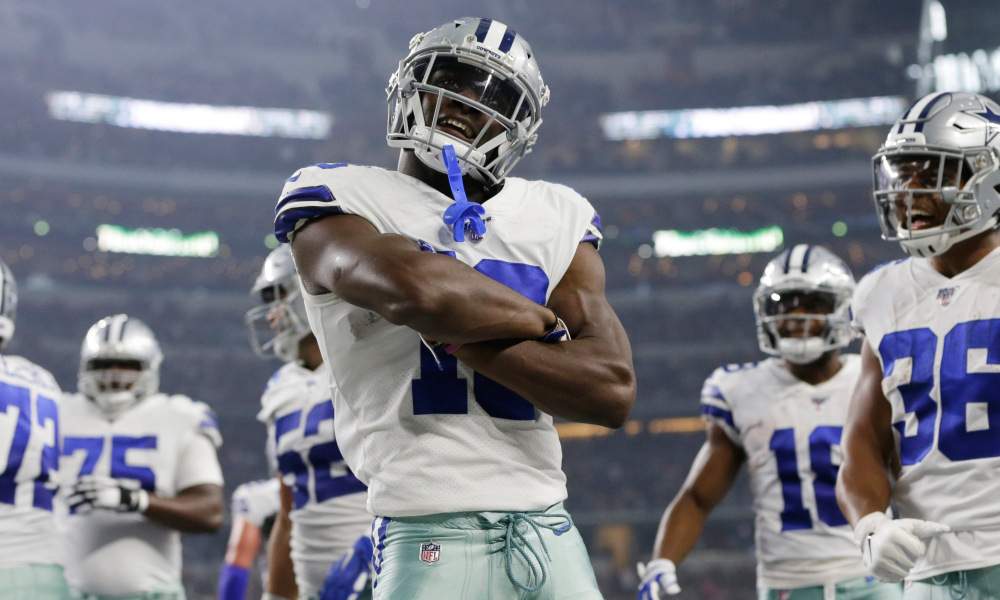
Photo by Tim Heitman/USA TODAY
While I don’t expect Cooper to be as inconsistent as last season, it’s concerning for him, and Gallup will likely benefit. However, there is another issue. In the first round of the draft, a top receiver in CeeDee Lamb fell right into the Cowboys’ laps. Not wanted to pass up on an insane talent, Jerry Jones and Mike McCarthy scooper up the Oklahoma star. It wouldn’t be out of the realm of possibilities for all three receivers to have incredible seasons, however. Just last year, both Gallup and Cooper had over 1,000 receiving yards, while Randal Cobb had over 800. He’s in Houston now, and legendary tight end Jason Witten, who had 500 yards of his own, is now in Oakland. Blake Jarwin is expected to slide into the starting tight end role, but if Lamb is as good as we think he is, I don’t see why all three receivers can’t feast in this offense.
Gallup was not significantly more consistent than Cooper was last year, but his second-year breakout is encouraging enough to take him before some of the other receivers being ranked in the 30’s.
Round 7: Tarik Cohen – RB31, 81st overall
The human joystick still has plenty left in the tank.
After a down year in 2019, many are skeptical about Tarik Cohen, and the Bears offense in general. Also, I already spoke about David Montgomery, so why another Bears running back?
The simple answer is that, in PPR, Cohen has value. Like many other RBs at his ADP, Cohen gets a large chunk of his points in the receiving game. While his rushing attempts dropped from 99 to 64 with the addition of Montgomery, his targets rose from 91 to 104. It seems like a fair trade-off, so what’s the problem? It seems like the targets and receptions would compensate at least a little.
The biggest issue was that, while he got 13 more targets and 8 more receptions, he had 269 FEWER receiving yards than in 2018. Cohen’s yards per reception dropped from 10.2 to 5.8, almost being halved. That being said, I’m confident. As I stated before, this Bears offense was terrible when compared to the rest of the league, and should have a chance to improve in 2020. Additionally, this type of performance is historically unlikely to repeat, and has happened to plenty of great players. Since those stats were being tracked, Cohen’s 5.8 YPR is the second fewest amongst RBs with at least 70 catches. If he continues to have over 70 catches, something he has already done for the past two seasons, it’s much more likely that he increases, rather than setting another historic low.
I would also consider taking someone like James White, who is often drafted around a similar ADP and is ranked just four spots ahead of Cohen. However, I feel that White had a much better 2019, which would cause the general public to draft him more already. I wanted to mention a name that hasn’t been mentioned nearly as much.
Draft Tarik Cohen, throw him into your FLEX or RB2 during a bye-week, and be happy.
Don’t forget to come back for part two next week, where we really get into the deep rounds of the draft!

